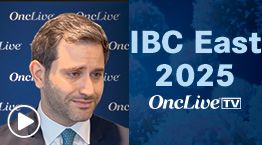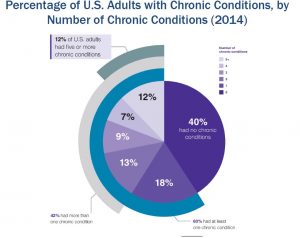Report on the Case of Mads Mikkelsen’s Denied Entry to the United States and Its Implications for Sustainable Development Goals
Incident Overview
Mads Mikkelsen, a 21-year-old Norwegian citizen from Tromsø, was denied entry to the United States at Newark Liberty International Airport by U.S. immigration officers. The incident attracted significant international media attention, raising concerns related to human rights and fair treatment at borders, which are integral to the Sustainable Development Goals (SDGs), particularly SDG 16 (Peace, Justice and Strong Institutions) and SDG 10 (Reduced Inequalities).
Details of the Incident
- Mikkelsen was warned about potential fines or imprisonment and subsequently provided immigration officers with the PIN code to his phone.
- Officers found images on his phone, including a meme of U.S. Vice President JD Vance and a private photo of a pipe, which were initially thought to be reasons for denial.
- U.S. Customs and Border Protection (CBP) clarified that Mikkelsen was not denied entry due to political reasons or images but because of admitted drug use, specifically cannabis use in places where it is legal.
Mikkelsen’s Response and Concerns
- Mikkelsen admitted to cannabis use in Germany and New Mexico, where it is legal, and considered this irrelevant to his entry eligibility.
- He expressed skepticism about the CBP’s official statement and highlighted inconsistencies in the written decision, including false claims about his nationality and possession of a Spanish passport.
- Mikkelsen denied carrying a physical pipe and refuted claims about visiting family in the U.S., stating he intended to visit friends.
- He criticized the handling of the case as unprofessional, emphasizing the need for transparency and fairness in immigration procedures, aligning with SDG 16.
Broader Implications for Sustainable Development Goals
This case underscores several key SDGs:
- SDG 16: Peace, Justice and Strong Institutions – The incident highlights the importance of fair, transparent, and accountable immigration processes to uphold justice and human rights.
- SDG 10: Reduced Inequalities – Ensuring non-discriminatory treatment of travelers regardless of nationality or personal background is essential to reducing inequalities.
- SDG 3: Good Health and Well-being – The legal status of cannabis in various regions reflects evolving health policies, which should be considered in international travel regulations.
- SDG 17: Partnerships for the Goals – The need for cooperation between countries to harmonize immigration and drug policies is critical to support sustainable development and global mobility.
Conclusion and Recommendations
- Immigration authorities should ensure that decisions are based on accurate information and respect the legal frameworks of other jurisdictions, supporting SDG 16.
- Greater transparency and communication are necessary to prevent misinformation and protect individual rights, contributing to SDG 10.
- International dialogue on drug policy and border control should be strengthened to align with evolving legal standards and health considerations, advancing SDG 3 and SDG 17.
- Media coverage should focus on promoting awareness of these issues to foster understanding and support for sustainable development principles.
Visual Documentation
PEACE: Mads Mikkelsen was forced to turn off his phone due to extensive media interest. Photo: Jakob Bergland Aas
1. Sustainable Development Goals (SDGs) Addressed or Connected
- SDG 10: Reduced Inequalities
- The article highlights issues related to immigration, border control, and potential discrimination or unfair treatment of travelers, which relate to reducing inequalities within and among countries.
- SDG 16: Peace, Justice and Strong Institutions
- The article discusses the role of U.S. Customs and Border Protection and Immigration and Customs Enforcement, focusing on justice, fairness, and institutional transparency.
- SDG 3: Good Health and Well-being
- The mention of drug use, legality of cannabis, and questioning related to health and legal substance use touches on public health and well-being.
2. Specific Targets Under Those SDGs Identified
- SDG 10: Reduced Inequalities
- Target 10.3: Ensure equal opportunity and reduce inequalities of outcome, including by eliminating discriminatory laws, policies and practices.
- SDG 16: Peace, Justice and Strong Institutions
- Target 16.6: Develop effective, accountable and transparent institutions at all levels.
- Target 16.7: Ensure responsive, inclusive, participatory and representative decision-making at all levels.
- SDG 3: Good Health and Well-being
- Target 3.5: Strengthen the prevention and treatment of substance abuse, including narcotic drug abuse and harmful use of alcohol.
3. Indicators Mentioned or Implied to Measure Progress
- For SDG 10 (Reduced Inequalities)
- Indicator 10.3.1: Proportion of population reporting having personally felt discriminated against or harassed.
- Implied by the article’s discussion of immigration treatment and possible discrimination based on nationality or drug use.
- For SDG 16 (Peace, Justice and Strong Institutions)
- Indicator 16.6.2: Proportion of the population satisfied with their last experience of public services.
- Indicator 16.7.2: Proportion of population who believe decision-making is inclusive and responsive.
- Implied by the article’s focus on transparency and accountability of immigration enforcement agencies.
- For SDG 3 (Good Health and Well-being)
- Indicator 3.5.1: Coverage of treatment interventions (pharmacological, psychosocial and rehabilitation and aftercare services) for substance use disorders.
- Implied through the discussion on drug use legality and related questioning at the border.
4. Table: SDGs, Targets and Indicators
| SDGs | Targets | Indicators |
|---|---|---|
| SDG 10: Reduced Inequalities | 10.3: Ensure equal opportunity and reduce inequalities of outcome, including by eliminating discriminatory laws, policies and practices. | 10.3.1: Proportion of population reporting having personally felt discriminated against or harassed. |
| SDG 16: Peace, Justice and Strong Institutions |
|
|
| SDG 3: Good Health and Well-being | 3.5: Strengthen the prevention and treatment of substance abuse, including narcotic drug abuse and harmful use of alcohol. | 3.5.1: Coverage of treatment interventions for substance use disorders. |
Source: nordlys.no







